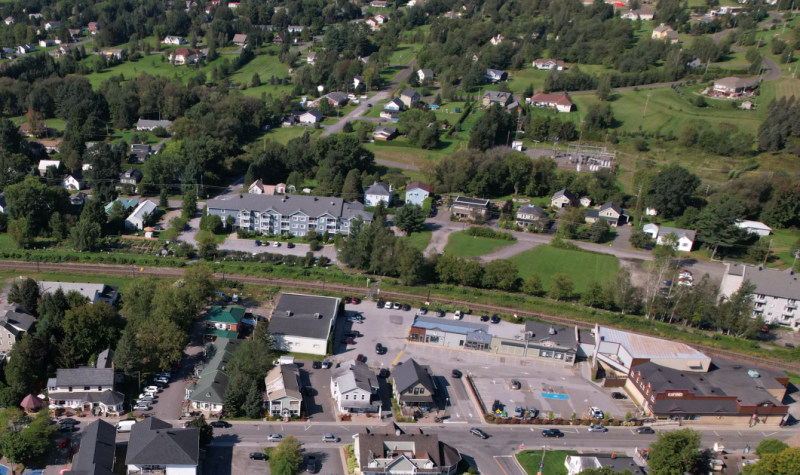The Town of Sutton is moving ahead with a study on a piece of municipal land in Sutton's downtown core for a future affordable housing project for lower and middle-income individuals and families after signing a memorandum with local non-profit organization Solutions immobilier solidaire (SIS).
The SIS works with financial supporters to purchase land for the construction of affordable housing projects in order to protect housing from the speculative market.
The announcement of its partnership with SIS to bring an affordable housing project to fruition in Sutton follows a recent attempt on part of the municipality to develop a similar project on the former Vieux-Verger property. However, the borrowing by-law to purchase the land raised concerns amongst citizens and the owners of the property backed out of its sales agreement with the municipality. The owners of the Vieux-Verger site are reportedly working on their own housing development with the support of the municipality.
At the August 2 council meeting, town councillors reached a unanimous decision to carry out the feasibility study with the help of SIS with hopes of developing a different affordable housing project on a piece of land located adjacent to the Villas des Monts seniors’ residence. Recognizing that other housing developments are already in the works, Sutton Mayor Robert Benoît noted that the municipality’s project is meant to compliment these housing developments to address the housing crisis in the village.
“This project is not a competitive project, these projects could very well go together. The project that we are trying to develop right now is more affordable housing for people. There will be affordable housing in the Vieux-Verger, but probably not for all of the houses or apartments that will be built,” explained Benoît. “Ours is mostly, and foremost, for low and modest income.”
Benoît noted that the cost of housing in the village is going “through the roof right now,” which has discouraged people and families from staying or settling in Sutton.
Unlike the Vieux-Verger project, the municipality owns the piece of land that it is is seeking to have evaluated by SIS, which means that it doesn’t need public approval to move forward with the project.
“There is a crisis, everybody recognizes there is a housing crisis. People cannot afford to live in Sutton. People who work at Mont Sutton, in the restaurants here, on the commercial strip on Main Street, they cannot afford to live here. So we need to find ways to bring about new rentals and houses on the market,” he emphasized.
The goal of the feasibility study with SIS is to give the municipality a better picture as to how it will move forward. The completion of feasibility study deadline is December 31, 2024. Once the study is complete, the municipality and SIS will begin marketing the apartments for new or existing Sutton citizens.
“There’s a lot of homework to do. We need to determine the number of households, the number of rentals, the way it will be designed, the architectural integration. We need to do a lot of work and they will [take care of that.] Obviously, they will work with private construction companies to really offer the best rental or housing price that we can at this point in time,” explained Benoît. “(…) This is not the Vieux-Verger, the Vieux-Verger was 21 acres. This is a smaller lot, but the advantage is that the water and the sewer systems are already there.”
To keep the price of the housing and/or rental units down, the municipality’s new project will be based on a business model that originates in the United States and which is slowly being developed in Quebec. The work of SIS stems from this new model and it involves obtaining funding from financial backers, such as financial institutions, to purchase land and create a “community land trust” for affordable housing, therefore taking it out of the hands of private speculators.
According to Benoît, a big difference between the municipality’s former affordable housing project for the Vieux-Verger and its new project is that the community land trust is a non-profit that will oversee the affordable housing project for perpetuity. Once the affordable housing is built, the municipality will not own or manage the project.
“It’s a new business model that tries to control the price of land on a perpetual basis. When it’s sold, there is no incremental profit being derived from the land. This is a way to offset the cost of housing,” he explained.
Benoît added that lowering construction costs should also help offset the costs of the project’s housing and rental units.
“The good news is that every comment that I got from construction entrepreneurs is that construction costs are going down at this time. (…) The interests rates are going down, there is less activity on the market so people are more competitive, construction costs, as a result, are going down,” he mentioned. “So I think [it’s the right time]. The curve is going down slightly and hopefully even more so that we can come back to more normal construction costs. The goal, obviously, is to keep construction costs as low as possible.”
Listen to the full interview below:


